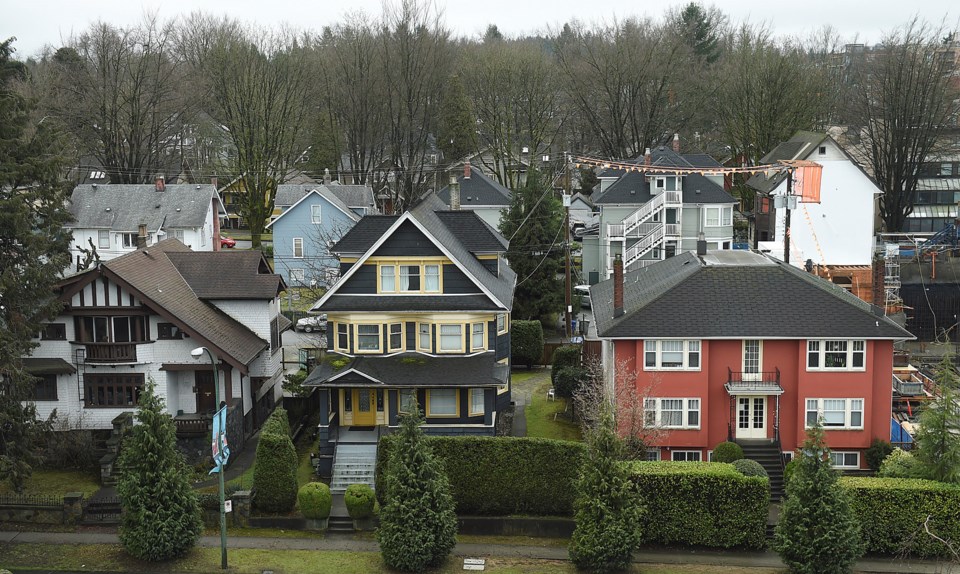Driven by a thirst for exciting career opportunities and a desire to see the world, I left Â鶹´«Ă˝Ół»in 2010 and spent most of the next six years living in other parts of Canada or abroad. A yearning for my family, friends and the mountains eventually drew me back. But, when I returned last fall, it soon became clear that, unlike me, many 20- and 30-somethings are looking to leave — if they haven’t already.
Housing costs are to blame for driving many out. They certainly have people I know reconsidering their life in the city. Take Jane, a social worker in her late 20s who is about to get married. The combined costs of rent, groceries and childcare are so high she believes she’d have to move to raise a family. Having kids in Â鶹´«Ă˝Ół»â€śdoesn’t even seem like an option,” she says. Â
Others, like a friend whose landlord hasn’t raised rent on his and his partner’s apartment since 2011, are counting their blessings. They’re “teetering on the edge of affordability,” he explains.
As for me, I’ve managed to dodge the issue mostly because, for now, I’m content living with my parents at home. Even so, I’m dismayed by the lack of long-term vision in the election platforms of the two political parties likely to win the May provincial election.
The B.C. Liberals’ pledge to help the middle class buy homes without offering much in the way of new policy ideas rings hollow when I hear of millennials in supposedly “middle class” fields such as accounting, law and physiotherapy looking to leave the city, in part, because of housing costs.
The NDP talks of building more social and affordable housing, in addition to amping up tenant protections and offering an annual $400 rental rebate. For many, this is welcome news. The NDP’s pledge to provide $10-a-day childcare would also help millennials.
But putting a bit of cash in tenants’ pockets and making it harder to evict them isn’t a long-term fix for the supply-and-demand dynamics shaping the housing market. Â
Farah, a friend in her early 30s who works in corporate recruitment, finds it uninspiring. After actively looking for a place in Â鶹´«Ă˝Ół»for two years, she laments that no one is talking about “affordable home ownership.”
“I keep getting out-bidded and it keeps getting more expensive,” she says, noting she spent six years saving tens of thousands for a down payment. “I would need to make six figures for it to work.”
Some might think millennials are whining, that we’re not working hard enough or that we should be content to head for the burbs. Â
Setting aside the fact that Â鶹´«Ă˝Ół»consistently ranks as one of the world’s most unaffordable cities, such arguments miss the most important point. Individual decisions to move to cheaper pastures or to put off having children add up to a larger question — what kind of city do we want Â鶹´«Ă˝Ół»to be?
Right now, for a lot of millennials, it’s a place where they don’t feel like they can viably have kids. Or a place they love, but don’t feel confident they can call home for years to come. That doesn’t bode well for building community, mental health or economic diversity.
For some, it also comes with hefty short-term costs — like young people giving up on educational opportunities to afford housing, or sticking it out in rat-infested or mouldy apartments because they feel they don’t have a choice, says Tesicca Truong, co-founder of CityHive Vancouver, a group that advocates getting young people actively involved in planning and shaping the city.
“There’s been so much talking about millennials and not a lot of talk with and by millennials,” says Truong, 23. “We felt strongly the need to provide a platform for young people to be able to talk about their challenges living in the city and, also, about creative solutions.”
Earlier this year, the group put together a “pop-up think tank” of 30 people under 30 to brainstorm solutions on housing and affordability. The ideas they’re working on include a rate-your-landlord website and shared living arrangements where young people can help their landlord — say an elderly person who needs things done around the house or a parent who needs childcare — in exchange for lower rent. Truong hopes it would foster inter-generational connections.
Of course, many more solutions are needed, including more efforts to densify Vancouver, but it’s refreshing to hear the enthusiasm in Truong’s voice and see her drive to think outside of the box.
In contrast, provincial politicians tinker around the edges. We need bigger changes than the ones they’re proposing. We also need leadership with a long-term vision. I worry about where Â鶹´«Ă˝Ół»will end up without it.



